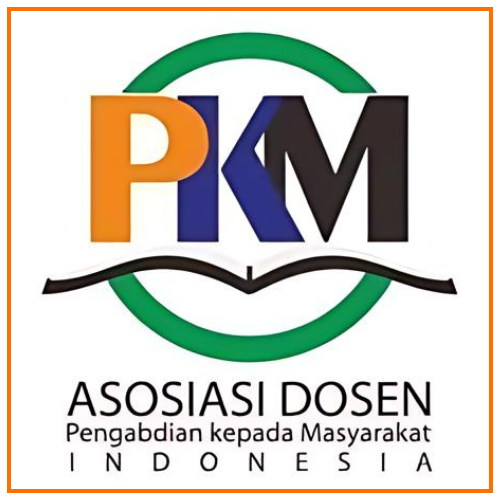Speech Acts in EFL Context: A Literature Review
Abstract
Keywords: Speech Acts, EFL, Text-Books
Full Text:
PDFReferences
Alemi, M., & Irandoost, R. (2012). A Textbook Evaluation of Speech Acts: The Case of English Result Series. International Journal of Applied Linguistics and English Literature, 1(6), 199-209.
Austin, J. L. (1962). Speech acts.
Babaie, S., & Shahrokhi, M. (2015). A Cross-Cultural Study of Offering Advice Speech Acts by Iranian EFL Learners and English Native Speakers: Pragmatic Transfer in Focus. English Language Teaching, 8(6), 133–140. https://doi.org/10.5539/elt.v8n6p133.
Budiasih, L. T., Andayani, A., & Rohmadi, M. (2017). Illocution in Speech Acts By Foreign Students in Indonesian As a Foreign Language Classes. IJOLTL (Indonesian Journal of Language Teaching and Linguistics), 2(3), 213–226. https://doi.org/10.30957/ijoltl.v2i3.390.
Fahmi, R. N. (2018). Types of Speech Acts in Indonesian Debate Argumentative Discourse. Seloka: Jurnal Pendidikan Bahasa dan Sastra Indonesia, 7(1), 28–37.
Grundy, P. (2008). Doing Pragmatics (3rd ed.). London: Hodder Education.
Hamidi, A. (2018). The Speech Act of Disagreement by Indonesian EFL Learners: Politeness Strategies and Appropriateness. (April), 34–38.
Harooni, M., & Pourdana, N. (2017). Politeness and Indirect Request Speech Acts: Gender-Oriented Listening Comprehension in Asian EFL Context. International Journal of Applied Linguistics and English Literature, 6(2), 214. https://doi.org/10.7575/aiac.ijalel.v.6n.2p.214.
Indah Sari, N. (2019). An Analysis of Speech Acts Used in English Teaching. Borneo Educational Journal (Borju), 1(2), 16–22. https://doi.org/10.24903/bej.v1i2.611.
Ivana Swastiana, N. M., Putra I.N, A. J., & I.W, S. (2020). An Analysis of Speech Acts Used by the Seventh-Grade Teacher of SMPN 2 Bangli in EFL Classroom Interaction. Journal of Education Research and Evaluation, 4(1), 49. https://doi.org/10.23887/jere.v4i1.23542.
Jalilian, M., & Roohani, A. (2016). Evaluating Speech Acts in ELT textbooks: The Case of Compliments and Complaints in the Touchstone Series. Research in English Language Pedagogy, 4(1), 101-114.
Leech, Geoffrey. 2011. Prinsip-Prinsip Pragmatik (terjemahan M.D.D. Oka). Jakarta: U I Press.
Mukhroji, M., Nurkamto, J., Subroto, H. D. E., & Tarjana, S. S. (2019). Pragmatic Forces in the Speech Acts of EFL Speakers at Kampung Inggris, Indonesia. Journal of Social Studies Education Research, 10(1), 38–60.
Neama, G. H., & Neama, G. H. (2021). Examining Iraqi EFL Learners’ Use of the Speech Act of Advice at the University Level. 18(10), 2877–2891.
Nourdad, N., Mohammadnia, Z., & Roshani Khiabani, L. (2016). Evaluation of Speech Acts in the Newly Developed Iranian EFL English Textbooks. Modern Journal of Language Teaching Methods, (MJLTM), 4(2), 1-10.
Nugroho, A., & Rekha, A. (2020). Speech Acts of Requests: A Case of Indonesian EFL learners. Journal of English Language Teaching and Linguistics, 5(1), 1–16. Retrieved from www.jeltl.org.
Refualu, N. S., Luardini, M. A., & Norahmi, M. (2021). An Analysis of Speech Act Used in The Written Conversations from English Textbook for Junior High School Grade Ix Published By The Ministry of Education and Culture in 2018. Academic Journal of Educational Sciences, 5(1), 22-26.
Saadatmandi, M., Khiabani, S. M., & Pourdana, N. (2018). Teaching English Pragmatic Features in EFL Context: A Focus on Request Speech Acts. Theory and Practice in Language Studies, 8(7), 829–835. https://doi.org/10.17507/tpls.0807.14
Şanal, M., & Ortaçtepe, D. (2019). Learners’ Request Speech Acts Realization. Journal of Language and Linguistic Studies, 15(1), 376–399.
Santosa, A. W., & Kurniadi, A. (2020). Speech Act Analysis of Teacher Talk in EFL Classroom. Jurnal Penelitian Humaniora, 21(2), 101–107. https://doi.org/10.23917/humaniora.v21i2.9871.
Searle, J. R. (1979). Expression and Meaning: Studies in the Theory of Speech Acts. Cambridge University Press.
Suryandani, P. D., & Budasi, I. G. (2021). An Analysis of Directive Speech Acts Produced by Teachers in EFL Classroom. Journal of English Language and Culture, 12(1), 36–45. https://doi.org/10.30813/jelc.v12i1.2823.
Yanti, D. R., Amin, M., & Amrullah. (2021). The Analysis of Speech Acts Used by EFL Teachers in Classroom Interaction at SMAN 2 Mataram in Academic Year 2021/ 2022. International Journal of Multicultural and Multireligious Understanding, 8(5), 90–98. https://doi.org/http://dx.doi.org/10.18415/ijmmu.v8i5.2538/
Vaezi, R., Tabatabaei, S., & Bakhtiarvand, M. (2014). A Comparative Study of Speech-Acts in the Textbooks by Native and Non-Native Speakers: A Pragmatic Analysis of New Interchange Series vs. Locally-Made EFL Textbooks. Theory & Practice in Language Studies, 4(1).
Wijana, I Dewa Putu. 1996. Dasar-dasar Pragmatik. Yogyakarta: Penerbit Andi.
Zayed, N. M. (2014). Jordanian EFL Teachers’ and Students’ Practice of Speech Acts in the Classroom. International Journal on Studies in English Language and Literature (IJSELL), 2(5), 1–10.
DOI: https://doi.org/10.37058/jelita.v2i2.6879
Refbacks
- There are currently no refbacks.








Journal of Education, Language Innovation, and Applied Linguistics
Lembaga Penelitian, Pengabdian Kepada Masyarakat dan Penjaminan Mutu Pendidikan (LP2M-PMP) Universitas Siliwangi
Jalan Siliwangi Number 24, Kota Tasikmalaya - 46115
West Java, Indonesia










